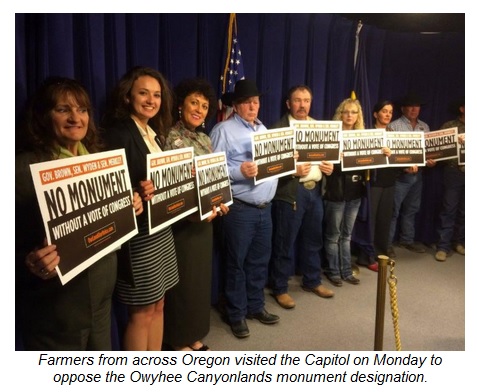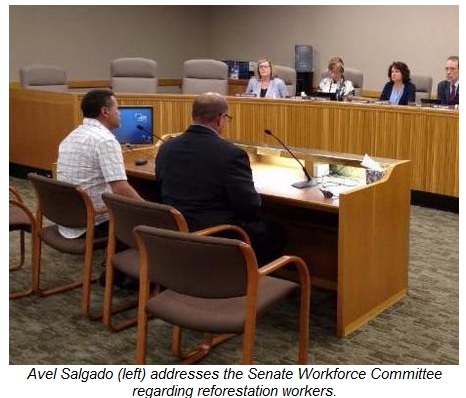 By Oregonians for Food and Shelter
By Oregonians for Food and Shelter
This week legislators were in town for the May “Legislative Days.” This is an opportunity for committees to hold hearings on various issues. Termed “informational”, these hearings are made up of set panels that discuss a given issue. While no bills are actually considered, they give a good preview of issues that the legislature will likely take up when they officially meet to conduct business next February.
Two hearings this week involved issues of interest to OFS members. The first was on Monday where the House Committee on Rural Communities, Land Use and Water held a hearing on the Owyhee Canyonlands potential monument designation. We have explained the issue in previous newsletters and invited you to sign on to the coalition opposing the designation. Farmers from across the state, including OFS Board Member Barry Bushue, attended the hearing and explained what the designation would mean for them. Linn County farmer Shelly Boshart Davis wrote a great recap of the hearing that we encourage you to read.
The other hearing of interest was on Tuesday in the Senate Workforce Committee. The hearing focused on forestry workers, with accusations of mistreatment of reforestation workers. Avel Salgado, the owner of Oregon Forest Management Services, provided a great perspective as a former reforestation worker who now owns a reforestation company. He is an example of the right way to do things and represented his industry well. Scott also testified on behalf of OFS, urging the Committee to hold agencies accountable for upholding the law.
Also the Legislative Revenue Office (LRO) released an analysis on IP 28, the gross receipts tax. The report determined the 2.5% gross receipt tax on corporations with $25 million or more of Oregon sales would generated an additional billion dollars for a total of $6 billion per biennium. LRO also clarified that Initiative Petition 28 “is expected to largely act as a consumption tax on the state economy. Taxes initially borne by the retail trade, wholesale trade and utility sectors are expected to result in higher prices for Oregon residents.” Additionally, if the measure were to pass, the state would lose 20,000 jobs. The previous week, proponents of the measure turned in over the require number of signatures to the Secretary of State. While not yet certified, all predict the measure will be on the November ballot.
Disclaimer: Articles featured on Oregon Report are the creation, responsibility and opinion of the authoring individual or organization which is featured at the top of every article.



